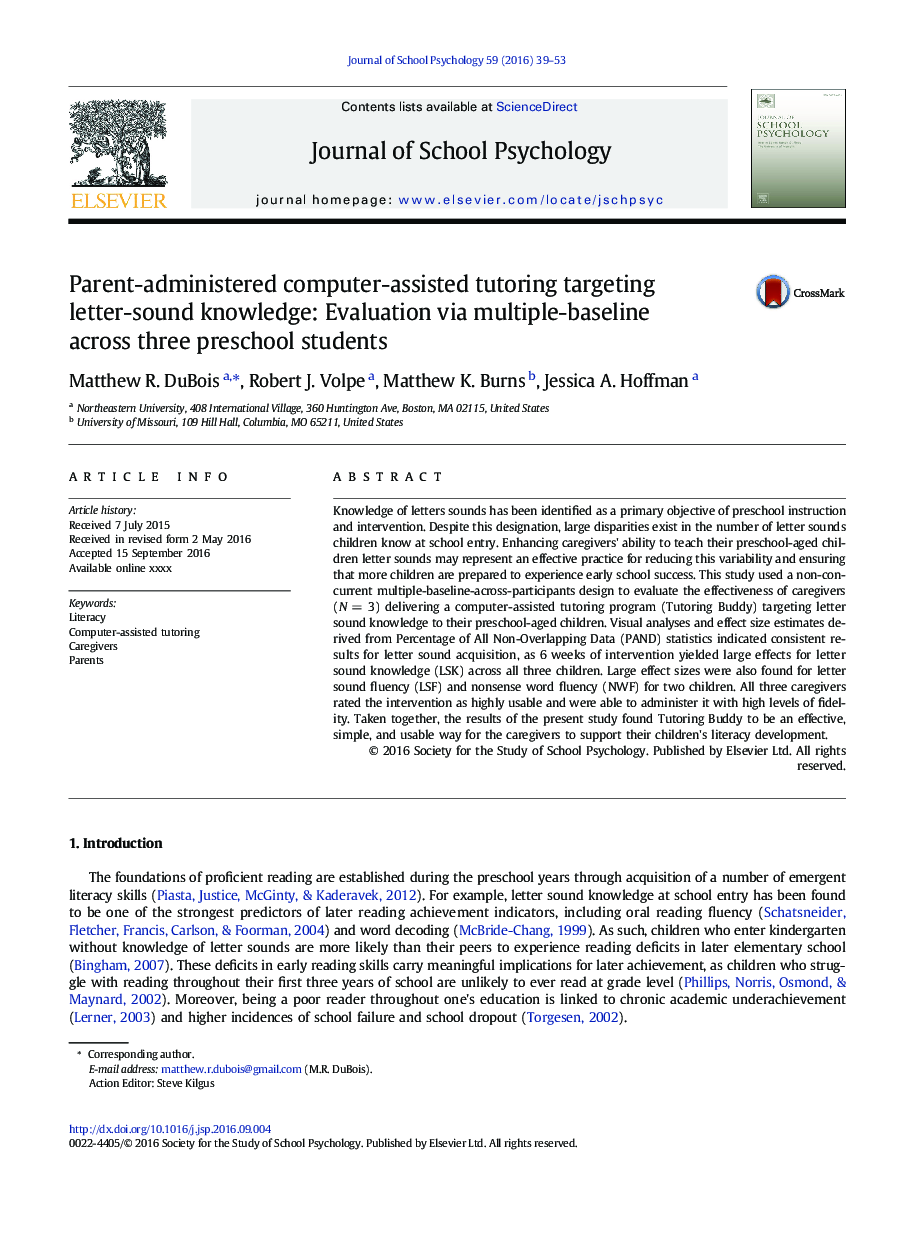| Article ID | Journal | Published Year | Pages | File Type |
|---|---|---|---|---|
| 4939812 | Journal of School Psychology | 2016 | 15 Pages |
Abstract
Knowledge of letters sounds has been identified as a primary objective of preschool instruction and intervention. Despite this designation, large disparities exist in the number of letter sounds children know at school entry. Enhancing caregivers' ability to teach their preschool-aged children letter sounds may represent an effective practice for reducing this variability and ensuring that more children are prepared to experience early school success. This study used a non-concurrent multiple-baseline-across-participants design to evaluate the effectiveness of caregivers (NÂ =Â 3) delivering a computer-assisted tutoring program (Tutoring Buddy) targeting letter sound knowledge to their preschool-aged children. Visual analyses and effect size estimates derived from Percentage of All Non-Overlapping Data (PAND) statistics indicated consistent results for letter sound acquisition, as 6Â weeks of intervention yielded large effects for letter sound knowledge (LSK) across all three children. Large effect sizes were also found for letter sound fluency (LSF) and nonsense word fluency (NWF) for two children. All three caregivers rated the intervention as highly usable and were able to administer it with high levels of fidelity. Taken together, the results of the present study found Tutoring Buddy to be an effective, simple, and usable way for the caregivers to support their children's literacy development.
Keywords
Related Topics
Social Sciences and Humanities
Psychology
Applied Psychology
Authors
Matthew R. DuBois, Robert J. Volpe, Matthew K. Burns, Jessica A. Hoffman,
